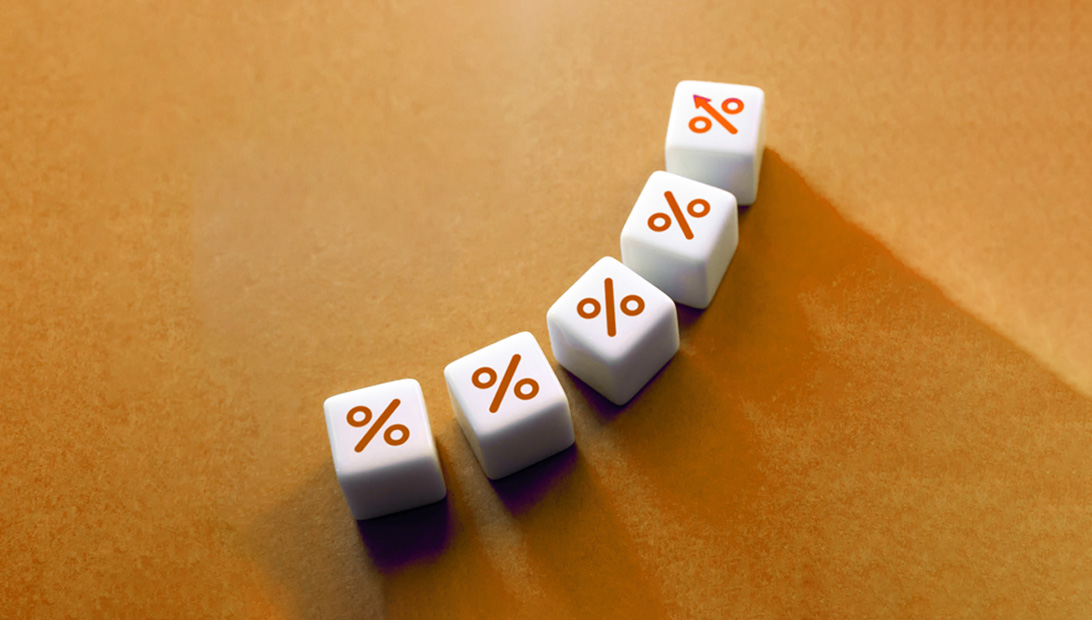
Monthly commentary
Summary
Did you know about the ‘September Effect’ in the stock markets?
Historically, September has a reputation as a month of weak performance and this September has been no different. Despite falling inflation, global markets have suffered from seasonal weakness on the back of higher-for-longer interest rates, rising oil prices and ripples from China. The artificial intelligence hype has also finally met the challenge of a slowing global economy – the S&P500 returned -4.8% over the month.
Feeling the pain
Stock markets were under pressure as rising bond yields started to worry investors once more. The 10-year US Treasury yields hit a 16-year high, driven by fears of higher-for-longer rates. A few factors have been at play to cause this worry: the unexpectedly resilient US economy defying recession expectations, increased government debt issuance, and the hawkish language emerging from the Federal Reserve.
The impact of high oil prices has also fuelled September’s reality check, with oil prices almost touching $100 a barrel. This was triggered by Saudi Arabia and Russia’s announcement that they will extend voluntary production cuts until the end of 2023. For central banks fighting inflation, this could become another problem they don’t need.
In the meantime, energy stocks are loving the price surge. The FTSE100 index posted steady gains over the quarter, up 2.1%, and was one of the better performing regional indices as a good chunk of the index is made up of the energy and utilities sector.
Doom and gloom in China?
China has been in the headlines for a while now. Sluggish growth, high youth unemployment rate and a crumbling property sector have all made the headlines associated with the world’s second-largest economy. While major indices have climbed year-to-date (YTD), the CSI 300 index returned -8.9 % YTD.
What has grabbed the attention in September is Evergrande Group, one of China’s largest property developers. Since Evergrande’s declaration of default back in 2021, payments haven’t been met, home prices are falling, buyers are spooked – and we’re seeing yet another China property crisis being triggered.
But the drama does not end here. Evergrande Founder and Chairman Xu Jia Yin has been placed under police scrutiny due to suspicion of ‘illegal crimes’ and trading of Evergrande stock has since been suspended.
The ripples of this crisis have been weighing on emerging markets and investor sentiment as the MSCI Emerging Markets Index returned -2.8% over the quarter.
On a more positive note, the Chinese government seems to be keen to signal support for the economy as Beijing cuts banks’ reserve requirement ratio, the second time this year after March.
Actions taken
During September, we did not make any major changes to portfolios.
Core investment views
At 7IM, we have a number of long-term core views that help to guide our investment decisions and allocations within portfolios.
Over the next 12 months, we think that the global economy will slow down – prompting bouts of volatility. In this environment, it is important to rely on a stable identity. Economic uncertainty creates fear and investor sentiment tends to overreact to economic turning points. Going forward, we believe that:
- Inflation is coming down: Across the developed world, inflation has peaked, and is mostly falling. Supply-chain disruptions have eased, energy prices are a little more settled, and companies are no longer reporting issues with finding workers. Of course, slower inflation still means rising prices – so the cost of living pain isn’t going away quickly
- Interest rates are high: We’re now over a year into the rate hiking cycle. Interest rates are unambiguously high when compared with the past decade. The impact of higher rates is always the same – although time-to-effect changes in every cycle
- The economy is slowing: For consumers and companies, day-to-day life is getting harder – whether it’s rising costs or increased debt, there’s less money left at the end of the week or month. As the flow of money around the economy slows, strong growth is more difficult to achieve. The world may or may not slip into a ‘technical’ recession in the next three months, but a sluggish growth environment is already here.
Sluggish and sideways… In an environment with lots of uncertainty and a lack of confidence, we want to make sure portfolios are insulated against shocks, while still generating sufficient returns to make investing worthwhile. And we think our portfolios are set up to do just that.
There’s no one answer… When managing a diversified long-term portfolio, there shouldn’t be a single ‘big’ call. For an outlook that calls for selectivity, especially in the medium and short term, we’re finding lots of different opportunities – both to protect capital and to grow it.

You can download the commentary as a PDF here.



I confirm that I am a Financial Adviser, Solicitor or Accountant and authorised to conduct investment business.
If you do not meet this criteria then you must leave the website or select an appropriate audience.
